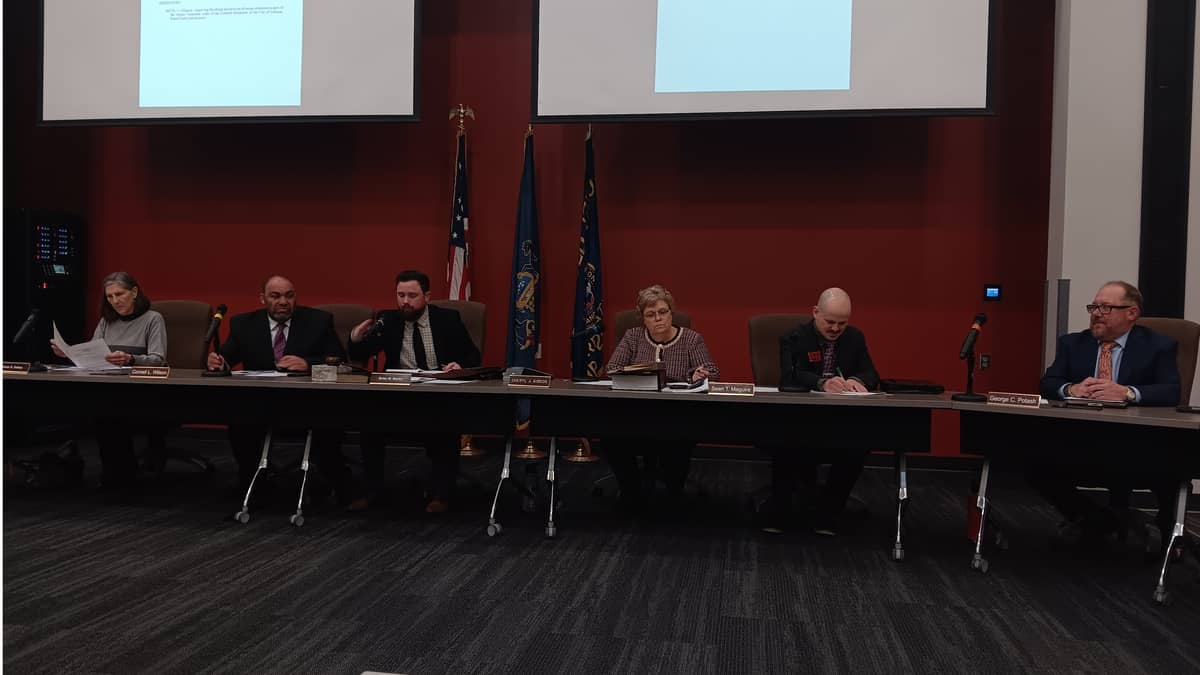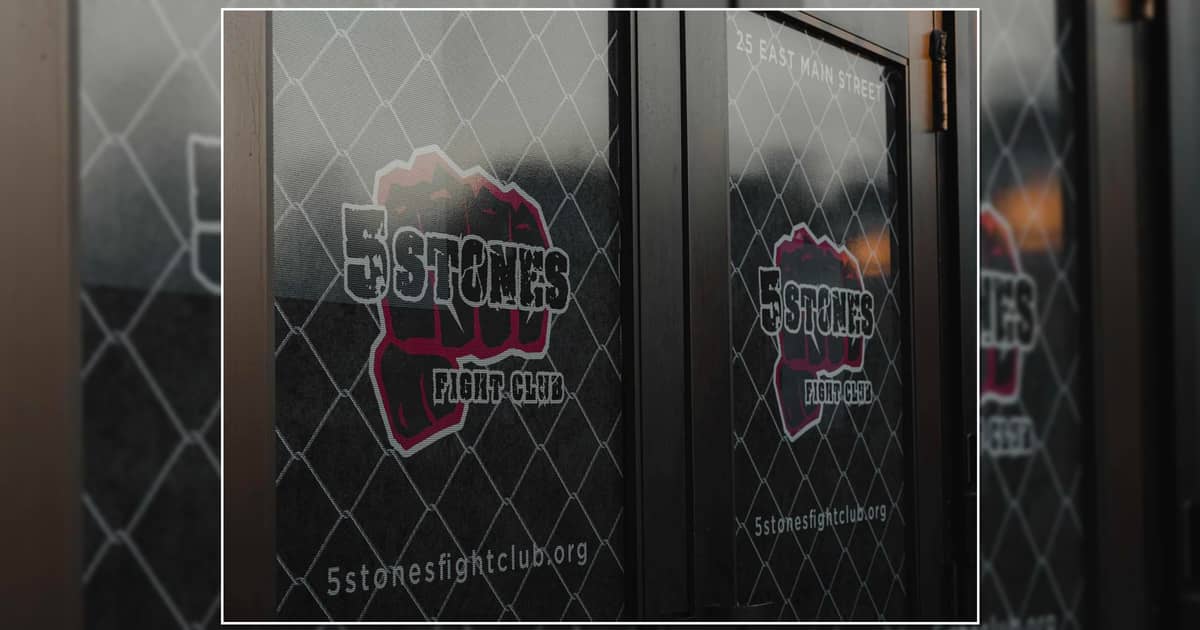This article is shared with LebTown by content partner Spotlight PA.
By Angela Couloumbis of Spotlight PA
HARRISBURG — “It’s the sounds, the lights, the competition or the experience of a lifetime.
Everyone comes for a different reason but leaves a modern cowboy.”
So goes the motto for Cheyenne Frontier Days, the premier summer festival in Wyoming that bills itself as the world’s largest outdoor rodeo and Western celebration, complete with concerts, carnivals, parades, cook-offs, an air show, and even professional bull-riding contests.
This past summer, a select group of Pennsylvania legislators, including House Majority Leader Kerry Benninghoff (R., Centre), got to experience the extravaganza for themselves courtesy of Pace-O-Matic.
The Georgia-based company makes skill games, slot-like machines that currently generate millions in revenue and, in Pennsylvania, operate in a legal and regulatory gray area — one the legislature will play a key role in defining.
For some of the lawmakers, it was an all-expenses-paid experience, information from the company indicates.
The trip to Wyoming is the latest example of a largely behind-the-scenes war of cash and influence between skill game operators like Pace-O-Matic and casino owners and other powerful gambling interests in the state.
On one side, skill game companies want their machines to be formally recognized as legal. On the other side stand the casinos and other gambling companies that have complained for years that the state’s gambling landscape is oversaturated — and that further competition will cannibalize the existing market.
As the fight rages, state lawmakers with the power to play kingmaker are benefitting handsomely, as there are no limits on the campaign cash flowing from the gambling industry interests, and no limits on gifts they can take from them or their lobbyists.
The disclosure of the Wyoming trip, first reported by Spotlight PA, comes against the backdrop of the legislature’s continued refusal to pass a gift ban to blunt the influence of deep-pocketed special interests on elected officials and their policy-making.
State House leaders this past week again declined to bring up a gift ban bill for debate, diminishing its chances of getting a floor vote before the legislature’s two-year session ends in November — and leaving Pennsylvania with the distinction of being one of the few states in the nation without any limits.

In a statement, a Pace-O-Matic spokesperson said the company, through its Wyoming subsidiary Cowboy Skill, was a sponsor of the Cheyenne Frontier Days this past July, and hosted nearly 600 guests at the event, including five Pennsylvania lawmakers.
Company spokesperson Jeanette Krebs said Pace-O-Matic’s guests received airfare, tickets to two concerts and two rodeos, meals, and hotel rooms. The per-person cost was roughly $1,700, excluding airfare, which varied by guest. Benninghoff and Rep. Greg Rothman (R., Cumberland) both attended the event but reimbursed Pace-O-Matic for their expenses, including their hotel stay.
While there, Pennsylvania’s legislators met with lawmakers from Wyoming to learn about how that state regulated the skill game industry, said Mike Barley, another Pace-O-Matic spokesperson.
“We invited Pennsylvania lawmakers from the House and Senate gaming committees and leadership to the event for the opportunity to meet with Wyoming legislators to learn how they regulated the skill game industry and how the system now successfully works in the state,” Barley said.
He said the company would report all expenditures related to lawmakers on its lobbying disclosure forms and expected legislators would also report the trip on their annual ethics statements. Though elected officials are allowed to receive gifts of any value, they have to disclose gifts worth more than $250, as well as any travel and hospitality over $650.
The forms for 2022, however, won’t be made public until May of next year.
In a statement, a spokesperson for Benninghoff said he “told the hosts of the event from the beginning that he would pay his own cost for the trip using personal funds, and he has paid for all airfare, lodging, and meals provided at the event.
“Rep. Benninghoff went on this trip to inform himself of how another state has dealt with a complex issue in a growing industry,” spokesperson Jason Gottesman continued. “He has not, nor will he not, allow those who provide amenities or campaign support to get in the way of him standing up for the best interests of Pennsylvania.”
Rothman, who Gottesman said also paid his own way, did not respond to a request for comment.
State Rep. Sue Helm (R., Dauphin) — who chairs the state House Gaming Oversight Committee, the first stop for bills in the chamber that deal with gambling — also attended.
In an interview, Helm, who is not running for reelection this year, said the company paid for her travel and accommodations but contended that “it wasn’t a lavish trip.”
“They weren’t paying for first-class airfare,” she said, noting she flew economy.

Pace-O-Matic had a hospitality suite, where Helm said she met some of the company’s employees and others with an interest in seeing skill games regulated and recognized as a legal and important revenue-producing industry.
“I went more for the learning experience,” she said, although she also said she attended two rodeos, one dinner, and a concert.
State Rep. Marci Mustello (R., Butler) also went to Wyoming to the festival as a guest of Pace-O-Matic, she told Spotlight PA. The company’s machines, she said, “could be a good revenue stream” for the state, taverns, and American Legions.
Mustello said that she paid for the trip herself out of her personal funds and has not been reimbursed. She did not elaborate.
The fifth lawmaker who attended, Rep. Jeffrey Wheeland (R., Lycoming), did not return a call seeking comment.
In Pennsylvania, Pace-O-Matic and its skill games have been at the center of a fierce debate.
The state legalized slot machine gambling in 2004, but since then, the legislature has voted to expand the types of games people can play — including table games, online gaming, fantasy sports, and sports betting — and where they can play them.
Skill games, however, have for years operated in a regulatory and legal gray zone, even as they continued to pop up in new locations throughout the state. State officials estimate there are now more than 50,000 machines across Pennsylvania.
The games are not authorized by the state’s gambling law and are not regulated by the Pennsylvania Gaming Control Board. As a result, they are not taxed like other gambling devices. (The state’s 16 casinos and mini-casinos, on the other hand, pay a 54% tax on revenues from slot machines.)
That discrepancy has created bad blood, with casino owners and others calling skill games illegal and pushing for legislation to ban them.
Manufacturers like Pace-O-Matic, on the other hand, argue that skill games do not amount to gambling because they rely on a level of cognitive and physical player ability, rather than on pure chance, to get a successful outcome. They want a law to formally legitimize, regulate, and tax their industry — although they have benefited financially from legislative inaction.
Not surprisingly, both sides have hired top lobbyists and lawyers, and have landed allies in the legislature who have introduced competing bills in recent years. As Spotlight PA reported earlier this year, this sometimes leads to cozy relationships between lobbyists and lawmakers working on this issue at times. Emails obtained by the news organization showed lobbyists for a Pennsylvania casino were ghostwriting legislation for a key Republican senator, participating in strategic planning sessions with him, and drafting talking points and other documents for his office.
Both sides have also donated hundreds of thousands of dollars to the campaigns of key legislators. Last summer, several top Republicans in the state Senate returned donations they had received from the skill game industry, citing the fact that it is unregulated.
According to campaign finance reports, the political action committee associated with the skill games industry has contributed nearly $1.2 million to lawmakers and other elected officials since the start of 2019. In that same time frame, the skill games PAC gave $28,500 to Benninghoff, $8,350 to Helm, $2,000 to Mustello, $47,500 to Rothman, and $8,000 to Wheeland.
Despite talk over the summer that the legislature might push through a gambling expansion bill this fall, it now appears unlikely, given the few voting days left before its two-year session ends in November.
State Sen. John Yudichak, the chamber’s lone independent, has for several years attempted to negotiate a compromise on gambling expansion, and in an interview likened the gambling landscape to a “battlefield.”
“It is very hard to build consensus,” said Yudichak, who represents Luzerne County and is not running for reelection.
Despite his involvement in the issue — Yudichak chairs the state Senate committee that deals with gambling issues — he said he did not receive an invitation to travel to Wyoming this summer.
Even if he had, he said, he likely would not have accepted.
“It’s a little too close to the Dallas Cowboys for this Eagles fan,” he said.
Stephen Caruso of Spotlight PA contributed to this story.
WHILE YOU’RE HERE… If you learned something from this story, pay it forward and become a member of Spotlight PA so someone else can in the future at spotlightpa.org/donate. Spotlight PA is funded by foundations and readers like you who are committed to accountability journalism that gets results.

























